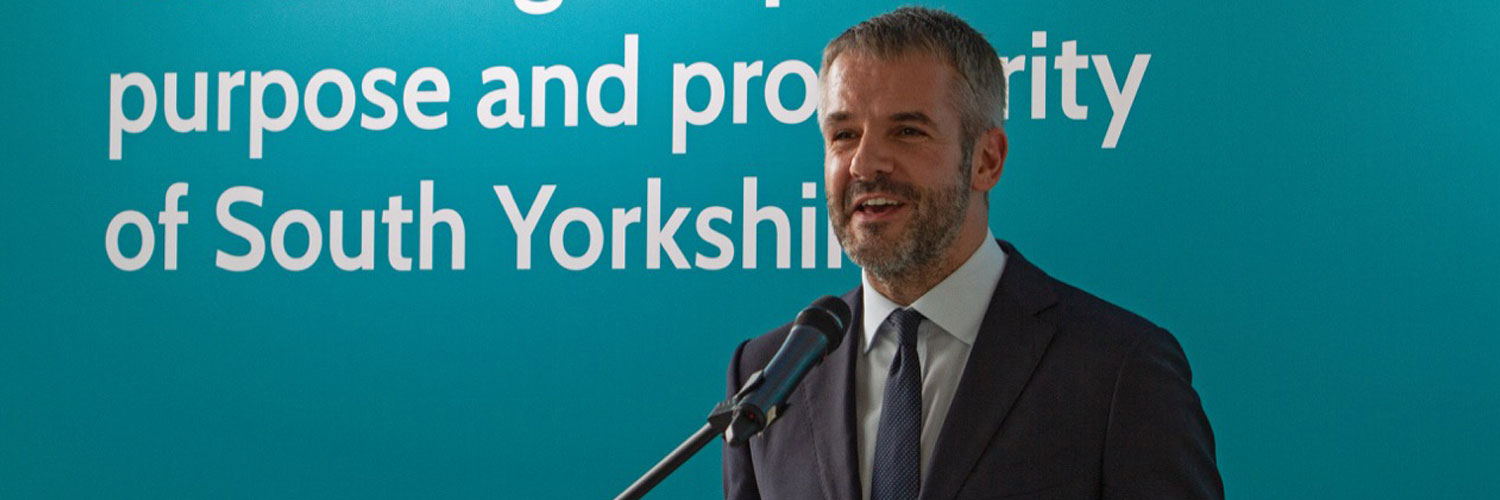
SY HEALTH AND WELLBEING BOARDS
SY Health and Wellbeing Boards Health Inequalities - February 2023
One of my best friends growing up was Idris Abdi Yufus Ahmed.
We met when I was 11, when I started at secondary school.
Idris had come to Sheffield just a couple of years earlier as a refugee from Somalia.
He was just a bit older than me, and used that to his advantage pushing me around the basketball court.
He was not an academic student, but he was a talented athlete.
Idris would race the bus home miles down into Sheffield – and he would beat the bus.
In the Sheffield track championship, he was so far ahead in a 1500m race that he stopped to chat with me and our other mates by the side lines; let his competitors catch up and get ahead; and still went on to beat them all.
When we were a bit older, he came second nationally for his age in a cross-country race - posting times that were better than Mo Farah would achieve at the same age.
Idris was destined to be a world class athlete.
But Idris had a problem with a valve in his heart.
He didn’t know how to fix it. He didn’t have access to the medical team who would have picked up on that had he entered the world of professional sport, a world that was closed off to him.
As refugees, he and his family struggled to navigate the NHS too, as his performance started falter and those runs became a bit harder.
Idris became a bus driver and has two daughters: Munira and Imani.
And, last year, Idris died. His heart gave up at the age of 41. Idris, my superstar mate from school, died the month I became South Yorkshire’s Mayor.
Idris was failed by our system. He did not become the celebrated sport star he should have been. He did not have the chance to represent his adopted country in the London 2012 games.
Indeed, Idris will never even become a fifty-year-old.
Idris’ story is just one of thousands we could tell about the lives cut short - the human potential squandered – in our neighbourhoods.
Today, a boy born in Mexborough or a girl born in Rother Valley will life a shorter life, and suffer twenty years more in poor health, than a boy born in Eccelsall or a girl in Penistone.
There are women here in South Yorkshire who are more likely to die during childbirth because of the colour of their skin.
People with learning disabilities and serious mental illness experience poorer health outcomes than those without.
At every turn, it is obvious we could and should do better.
I want you to pause for a moment.
Pause to reflect on the people in your own life – family, school friends, neighbours – who are not here or who did not achieve what they should have. Pause to reflect on what has brought you to this room, to a career in public health.
We cannot accept another generation trapped in an inherited cycle of poverty and poor health.
Behind each statistic is a life which is not lived to its full potential; a member of our community failed.
Idris could have smashed an Olympic record. One of those boys in Mexborough could’ve write the next great album. One of those girls from Rother Valley could be in this room today, as a colleague and friend.
We should reflect on ourselves too. Those of us in this room, though I know we are all committed to improving the lives of others, are not always representative of the communities we work for.
We need to ask ourselves: what mountains would we move in the bureaucracy if one of our loved ones needed it? How can we channel that energy to fight for everyone in South Yorkshire, and end these countless daily tragedies?
When I was elected as South Yorkshire’s mayor last year, I set out my personal ambition for us to become the healthiest region in the country.
That was no throwaway soundbite. No promise from the doorstep to be quickly forgotten.
I am here today as a sign of my commitment. I was honoured to accept the role of Chair of the Integrated Care Partnership. And I am excited, because I know there are so many people in South Yorkshire – in this very room – who share that commitment.
The work of the Health and Wellbeing Boards points the way. The challenges I have spoken about are ones that you all work on - and have been working on for decades, long before I arrived. Some of you will be here long after I’ve gone.
The work we will be setting out shortly in the ICP Strategy will be another staging post in our journey as a region: from laggard to leader.
That starts with us being realistic about the structural challenges we face. As a region, in all too many ways we are failing. More of the same will not be good enough.
The 2010s saw the first fall in the rate of life expectancy growth in the UK since the 1960s.
Even before the pandemic - even before today’s surge in challenges facing the NHS, local authorities and third sector partners - improvements in health were stalling and inequalities were widening across the country.
We will not turn these numbers around if we act in isolation, or keep using the same tools and expecting different results.
We need more discussion, debate, joint planning and innovative ways of working, starting with the people in this room. That is what today is all about. And this should not be a one-off. Let this be the start of something new.
One of the things we don’t do enough of in South Yorkshire is shout about what we’re good at, about our successes. We need to provide a platform to share what’s working – wherever it is – and spread that across our region.
I see this all the time in my work as Mayor. Just last week, for example, colleagues shared with me a note about a community immunisation project in Grimesthorpe.
One GP practice and one school, by iteratively engaging community groups, students, and families from Roma backgrounds especially, were able to foster a culture of providing services with the community rather than to the community.
Overcoming fake news and real insecurities in the community – and replacing them with trust – changed what were below average vaccination rates and …. That’s the sort of in depth, cross organisation, relationship-based change we will need to see scores of times over if we are to move the dial on inequalities.
It’s hard to believe, we can learn from outside of South Yorkshire too. Many of you will be familiar with the synthetic control analysis of devolution to Greater Manchester published last year in the Lancet. That shows just how quickly we can see results if we seize moments like this - for renewed partnerships under new leadership, and ambitious strategies.
What are the lessons we can take from Greater Manchester? Some of you may draw the obvious conclusion: it will take a witty, handsome, charismatic Mayor to make a difference.
But let’s hope not, because you’re stuck with me.
In the room today we have Steven Pleasant, who many of you will know and who is advising me on health policy at the MCA. Before that, Steven was CEO of Tameside Council and the lead CEO in Greater Manchester for health and social care devolution.
What he has explained to me is that the formal devolution of powers was just the tip of the iceberg; the visible pinnacle of decades of hard work across organisational, geographic and cultural boundaries.
Beneath the surface in Greater Manchester, keeping the system moving in the right direction, are the thousands of conversations and new relationships with and across communities.
At its heart, it is about recognising the breadth of the challenge. We do not aim to treat ill health. We aim to create a South Yorkshire that works for everyone, one in which all people thrive and flourish.
That is “why” we’re here. Raising our ambitions and committing to an even more collaborative culture is “how” we make things better.
But our work to date with the Health and Wellbeing Boards and with the ICP sets out “what” we should be doing in the shorter-term. Those more specific goals that will be needed to organise and drive action and are issues we’ll be covering throughout today.
The Marmot Principles and the Core 20 Plus 5 approach will remain our lodestar. Our ICP Strategy, that we will publishe soon, will restate that. We need to think about the practicalities of how we budget, how we target, how we procure and monitor performance. That will remain our bread and butter.
But we need to make sure we are finding the time for specific, focused, time-bound projects. That is how we can organise ourselves best to move problems out of the “too hard” box.
I want to draw your attention towards a specific project, which illustrates what I am talking about.
I want the first meeting of our first ICP Board, after we publish the ICP strategy, to focus on how we give young people the best start in life - wherever they are in South Yorkshire.
This is an area where we are already doing so much. We have a great emerging joint strategy with bold ambitions for both what we do and how we do it. I should thank all those who have contributed to it. I can see many of you are in the room today.
Supporting our children was a central priority of the Marmot Review in 2010, and failure to make progress was a lament in the follow-up 2020 review. The cost of failure is stark – both economically and morally.
Nationally, health inequalities mean £40 billion lost in taxes, increased welfare payments and further burdens on the NHS.
Here in South Yorkshire, the charity Baby Basics saw a 28% increase in referrals last year. Thousands of babies born here, now, do not even a bed to sleep in.
30% of our children who started school in September were not ready in terms of their social and emotional development – and sadly you’ll not be surprised to know that they tend to be from our poorer communities.
The evidence tells us that not having the best start in life has lifelong effects on many aspects of people's health and wellbeing – from chronic illnesses such as obesity, heart disease and mental health, to their educational achievement, but also their economic status. Not acting on inequality has profound implications for our region's long term economic success.
The tragedy is, of course, that this is largely preventable. We probably know who these children are before they are born. There is great work going on in every district through the Health and Wellbeing Boards - from which we must build - but we know it is not enough.
South Yorkshire is not short on strategies. Making a difference is going to require not just bold ambitions. It takes bold leadership, challenging our current thinking and doing.
We need to break down silos and join up services in places; we must develop and deliver services with people, and move money to target resources up stream and at those families and communities in most need. Without these things we will fail the test we are setting ourselves.
I have been struck by two early examples of how we are starting to bring this strategy to life.
First, we have been chosen as one of only three national early years regions by the Institute of Health Equity. It’s a real feather in our cap and will significantly strengthen the work of South Yorkshire's Children and Young People's Alliance.
Second, through the ICP we are working with the Bloomberg Harvard City Leadership Initiative and representatives from across South Yorkshire to look at how we can work better as a system to deliver that best start in life for our children, drawing upon all their international experience.
Later on today before the group work, I will interview Bulbul Kaul [TBC].
TBC is a Senior Director at the Bloomberg Harvard City Leadership Initiative. He will talk about his experiences of working with regions to help them work together better at addressing complex problems such as health inequalities. Hopefully that will help guide your thinking in the subsequent sessions.
We need that work to succeed, because the stakes are too high for us to fail.
When you are feeling bogged down in bureaucracy, or face a setback in delivery, take a moment to remember that person or event that brought you into public health. Cherish that motivation.
I will continue to remember Idris. I will measure my success as Mayor by whether or the equivalent of an Idris in our school system today – his daughters Munira and Imani, a refugee in our city from Ukraine or Afghanistan – becomes more likely to thrive and achieve their dreams by the time I leave office.
This will not be easy. We know too many children across South Yorkshire are studying in classrooms or sleeping in bedrooms that are not fit for purpose. They need us to be their champions. They need us to be brave. To be urgent.
What we are starting today is not another tick box exercise. This is something new. Something ambitious, experimental, creative.
I want events like today to become more regular. I’d like us to reconvene this summer, to take stock of progress, celebrate success, and hold each other to account. We must continue to be advocates for change when we return to our workplaces and our communities.
We need a movement for change.
We can’t settle for anything less. That is how we pay tribute and respect to those who aren’t in this room with us now. That is how we make sure we’re doing all we can for the kids today so they can thrive tomorrow.
They deserve it. South Yorkshire deserves it.
[We cannot be here in five years doing the same thing…]
Thank you.



